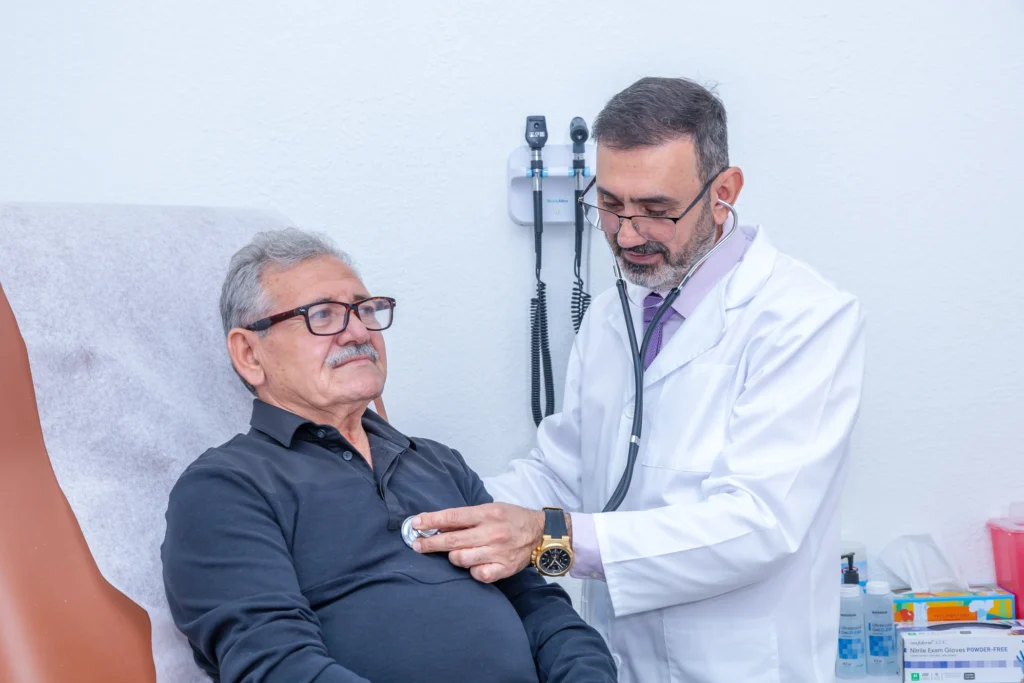Feeling a little nervous about your upcoming appointment? You’re not alone! Many women have questions and maybe even a little anxiety about what to expect. We at Dr. A Patient Care in Spring, TX 77379, understand that, and that’s why we’ve put together this comprehensive guide. We’ll walk you through everything you need to know, so you can feel prepared and confident during your visit.
Your Comprehensive Guide to the Well-Woman Exam: What to Expect
Let’s dive in and break down what a well-woman exam is all about.
What is a Well-Woman Exam?
It’s a preventative healthcare visit focused on your overall health and well-being. It’s not just about reproductive health; it’s about assessing and addressing your individual needs and risks. Think of it as a check-up designed specifically for women.
Why is it Important?
- Early Detection: Helps identify potential health problems early on, when they are often easier to treat.
- Preventative Care: Includes screenings and vaccinations to prevent certain diseases.
- Personalized Advice: Offers the opportunity to discuss any health concerns you may have and receive tailored advice.
- Family Planning: We can discuss contraception and family planning options if that’s on your mind.
What Happens During a Well-Woman Exam?
Okay, so what *actually* happens during the exam? It’s not as scary as it might seem! Here’s a breakdown:
1. Medical History Review
We’ll start by discussing your medical history. This includes:
- Your personal and family medical history
- Any medications or supplements you’re taking
- Your lifestyle habits (diet, exercise, smoking, alcohol use)
- Any specific health concerns you have
2. Physical Exam
This usually includes:
- Vital Signs: Checking your blood pressure, heart rate, and weight.
- General Assessment: Looking at your overall health and appearance.
- Breast Exam: We’ll do a clinical breast exam, and we can discuss how to perform self-exams. Learn more about breast exams.
3. Pelvic Exam
This is often the part that makes people the most nervous. Here’s what to expect:
- Visual Exam: The doctor will visually inspect your vulva and vagina for any abnormalities.
- Speculum Exam: A speculum is gently inserted into the vagina to allow the doctor to visualize the cervix. This is when a Pap smear is usually performed to screen for cervical cancer. Here’s how a Pap smear differs from a well-woman exam.
- Bimanual Exam: The doctor will insert one or two gloved fingers into the vagina while placing the other hand on your lower abdomen to feel the uterus and ovaries. What is a bimanual exam?
4. Screenings and Vaccinations
Depending on your age, risk factors, and medical history, we may recommend the following:
- Pap Smear: Screens for cervical cancer.
- HPV Test: Tests for the human papillomavirus (HPV), which can cause cervical cancer.
- STI Testing: Screens for sexually transmitted infections (STIs) like chlamydia and gonorrhea. Can you get tested for STIs?
- Mammogram: Screens for breast cancer (usually recommended starting at age 40 or 50).
- Bone Density Screening: Screens for osteoporosis (usually recommended starting at age 65). More on bone density screening.
- Vaccinations: We can discuss recommended vaccinations like the flu shot, Tdap booster, and HPV vaccine. The role of vaccinations in well-woman exams.
5. Discussion and Education
This is your chance to ask questions and discuss any concerns you have. We’re here to provide information and support on topics like:
- Contraception and family planning
- Menopause and perimenopause
- Sexual health
- Mental health Addressing your mental health.
- Nutrition and lifestyle Nutrition and lifestyle.
How to Prepare for Your Well-Woman Exam
Want to make the most of your appointment? Here are a few tips:
- Schedule Strategically: If possible, schedule your exam when you’re not menstruating.
- Make a List: Write down any questions or concerns you have. What questions to ask.
- Be Honest: Be open and honest with your doctor about your medical history and lifestyle habits. How to talk to your doctor.
- Relax: Take a few deep breaths before your exam to help you relax. Tips for a comfortable exam.
FAQs About Well-Woman Exams
Still have questions? Let’s tackle some common concerns:
Is a well-woman exam painful?
Most women experience little to no pain during a well-woman exam. You might feel some pressure or discomfort during the pelvic exam, but it shouldn’t be painful. If you’re concerned about pain, talk to your doctor. What to expect.
How often should I get a well-woman exam?
The frequency of well-woman exams depends on your age, health history, and risk factors. In general, most women should get one every year. Age-based guidelines.
Does insurance cover well-woman exams?
Most insurance plans cover well-woman exams as preventative care. However, it’s always a good idea to check with your insurance provider to confirm your coverage. Insurance coverage and options.
Can I get a well-woman exam while pregnant?
While a standard well-woman exam isn’t typically performed during pregnancy, you will receive comprehensive prenatal care, which includes many of the same elements. Can I get an exam while pregnant?
What if something is found during my well-woman exam?
If your doctor finds something concerning during your exam, they will discuss the next steps with you. This may involve further testing, treatment, or referral to a specialist. What if something is found?
We hope this guide has helped ease any anxiety you might have about your upcoming well-woman exam! Remember, it’s all about taking care of yourself and staying proactive about your health. Dr. A Patient Care is here to support you every step of the way. Contact us today to schedule your appointment. You can also get a consultation for more information on how we can help.
Taking charge of your health starts with understanding what to expect, and we’re confident that this guide has equipped you with the knowledge you need for a positive and productive well-woman exam.
Book Your Next Appointment Below:
Located on 5523 Louetta Rd STE C, Spring, TX 77379, our detailed assessment ensures that all your medical needs are addressed.
Not Sure What You Need?

